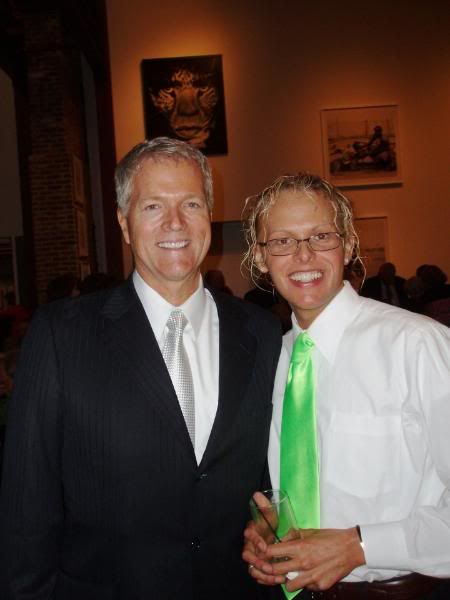FROM THE WASHINGTON TIMES...
Obama to delay 'don't ask, don't tell' repeal
Advisers see consensus building before lifting ban on gays
Rowan Scarborough (Contact)Friday, November 21, 2008
EXCLUSIVE: President-elect Barack Obama will not move for months, and perhaps not until 2010, to ask Congress to end the military's decades-old ban on open homosexuals in the ranks, two people who have advised the Obama transition team on this issue say.
Repealing the ban was an Obama campaign promise. However, Mr. Obama first wants to confer with the Joint Chiefs of Staff and his new political appointees at the Pentagon to reach a consensus and then present legislation to Congress, the advisers said.
"I think 2009 is about foundation building and reaching consensus," said Aubrey Sarvis, executive director of the Servicemembers Legal Defense Network. The group supports military personnel targeted under the ban.
Mr. Sarvis told The Washington Times that he has held "informal discussions" with the Obama transition team on how the new president should proceed on the potentially explosive issue.
Lawrence Korb, an analyst at the Center for American Progress and an adviser to the Obama campaign, said the new administration should set up a Pentagon committee to make recommendations to Congress on a host of manpower issues, including the gay ban.
"If it's part of a larger package, it has a better chance of getting passed," he said.
The Obama transition team did not reply to a request for comment.
The incoming administration is well aware of how President Clinton botched the same issue 15 years ago. Shortly after taking office in 1993, the president ordered the Pentagon to rescind the regulation that excluded gays.
On Capitol Hill, Republicans, and some leading Democrats, including then-Senate Armed Services Committee Chairman Sam Nunn of Georgia, objected. Retired military officers and a number of pro-military conservative activist groups joined the fight.
Sunday, November 23, 2008
Wednesday, November 19, 2008
Williams Institute: New Study: Employment Discrimination
Williams Institute: New Study: Rate of Anti-Gay Employment Discrimination Similar to Race and Gender Rates
UCLA’s WILLIAMS INSTITUTE RELEASES NEW STUDY FINDING RATES OF SEXUALORIENTATION EMPLOYMENT DISCRIMINATION SIMILAR TO RACE AND GENDERDISCRIMINATION
For Immediate Release
November 18, 2008
Media Contacts: M.V. Lee Badgett 310-904-9761 badgett@law.ucla.eduBrad Sears 310-794-5279 sears@law.ucla.eduChristopher Ramos 310-206-0883 ramos@law.ucla.edu
LOS ANGELES – Today the Williams Institute at the UCLA School of Lawreported that laws prohibiting sexual orientation discrimination in theworkplace are used as frequently by LGBT workers as laws prohibiting sex andrace discrimination are used by women and people of color. Currently,twenty states and the District of Columbia prohibit employmentdiscrimination on the basis of sexual orientation; thirteen of those statesalso prohibit gender identity discrimination.Analyzing employment discrimination complaints filed with state agencies instates prohibiting sexual orientation discrimination, the study finds 5 outof 10,000 LGBT people in the workforce file sexual orientation employmentdiscrimination complaints each year, compared to sex discriminationcomplaints filed by 5 out of 10,000 women in the workforce and racediscrimination complaints filed by 7 out of 10,000 people of color in theworkforce. “Our analysis directly questions the popular argument that sexualorientation anti-discrimination laws are unnecessary” noted study co-authorM.V. Lee Badgett, research director at the Williams Institute, “they areneeded and utilized by the LGBT workforce.”The report also addresses any worry that expanding employment discriminationto LGBT people would overwhelm state and federal agencies. Given the size ofthe LGB population and the filing rates of LGB people, any increase incomplaint intake would be negligible.Christopher Ramos, a researcher who also worked on the study, pointed outthat in eight states sexual orientation claims surpass sex claims; the sameis true for three states when compared to race claims. “Clearly, LGBTemployees are not only facing a certain level of discrimination, but also,taking advantage of protective state policies.”In 2007, a version of the Employment Non-Discrimination Act made a historicpassage through the U.S. House of Representatives, which would haveestablished sexual orientation as a federally protected class.Brad Sears, executive director of the Williams Institute, noted that over3.1 million LGBT adults live in states that do not provide this protectionfrom discrimination in the workplace. “As the debate surrounding thenecessity of LGBT workplace protections begins again in Congress we mustkeep in mind the fragile economic position of these LGBT employees and theirfamilies.”
The full report is available athttp://www.law.ucla.edu/WilliamsInstitute/pdf/PACR.pdf.
UCLA’s WILLIAMS INSTITUTE RELEASES NEW STUDY FINDING RATES OF SEXUALORIENTATION EMPLOYMENT DISCRIMINATION SIMILAR TO RACE AND GENDERDISCRIMINATION
For Immediate Release
November 18, 2008
Media Contacts: M.V. Lee Badgett 310-904-9761 badgett@law.ucla.eduBrad Sears 310-794-5279 sears@law.ucla.eduChristopher Ramos 310-206-0883 ramos@law.ucla.edu
LOS ANGELES – Today the Williams Institute at the UCLA School of Lawreported that laws prohibiting sexual orientation discrimination in theworkplace are used as frequently by LGBT workers as laws prohibiting sex andrace discrimination are used by women and people of color. Currently,twenty states and the District of Columbia prohibit employmentdiscrimination on the basis of sexual orientation; thirteen of those statesalso prohibit gender identity discrimination.Analyzing employment discrimination complaints filed with state agencies instates prohibiting sexual orientation discrimination, the study finds 5 outof 10,000 LGBT people in the workforce file sexual orientation employmentdiscrimination complaints each year, compared to sex discriminationcomplaints filed by 5 out of 10,000 women in the workforce and racediscrimination complaints filed by 7 out of 10,000 people of color in theworkforce. “Our analysis directly questions the popular argument that sexualorientation anti-discrimination laws are unnecessary” noted study co-authorM.V. Lee Badgett, research director at the Williams Institute, “they areneeded and utilized by the LGBT workforce.”The report also addresses any worry that expanding employment discriminationto LGBT people would overwhelm state and federal agencies. Given the size ofthe LGB population and the filing rates of LGB people, any increase incomplaint intake would be negligible.Christopher Ramos, a researcher who also worked on the study, pointed outthat in eight states sexual orientation claims surpass sex claims; the sameis true for three states when compared to race claims. “Clearly, LGBTemployees are not only facing a certain level of discrimination, but also,taking advantage of protective state policies.”In 2007, a version of the Employment Non-Discrimination Act made a historicpassage through the U.S. House of Representatives, which would haveestablished sexual orientation as a federally protected class.Brad Sears, executive director of the Williams Institute, noted that over3.1 million LGBT adults live in states that do not provide this protectionfrom discrimination in the workplace. “As the debate surrounding thenecessity of LGBT workplace protections begins again in Congress we mustkeep in mind the fragile economic position of these LGBT employees and theirfamilies.”
The full report is available athttp://www.law.ucla.edu/WilliamsInstitute/pdf/PACR.pdf.
Saturday, November 8, 2008
Subscribe to:
Posts (Atom)


